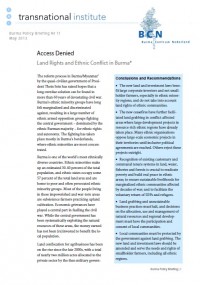May 20, 2013 Hundreds of residents of Sumur village in Klender, East Jakarta, blocked a road to prevent a housing developer and personnel from the public order agency (Satpol PP) from evicting them from their residences. East Jakarta Police chief Sr. Comr. Mulyadi Kaharni said on Saturday that the angry mob stopped dozens of vehicles […]
Latest news
- France begins eviction of 650 migrants from Calais camps
- Anti-eviction group creates crowdsourcing map for stories of displacement
- More foreclosures, more middle-aged suicides, study finds
- When it comes to hosting the Olympics, more cities are saying, ‘Hold that thought.’
- European leaders urged to end plight of 600,000 stateless people
Latest from the collection
- Raquel Rolnik’s mandate ends. Leilani Farha is the new rapporteur. – Newsletter #47
- Roots and Branches
- New Materials on Security of Tenure in Several Languages – Newsletter #46
- Guide: Guiding principles on security of tenure for the urban poor
- Address acute housing crisis – Special rapporteur on adequate housing
Learn more

